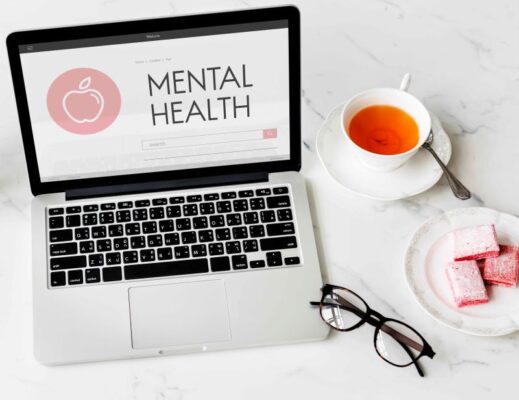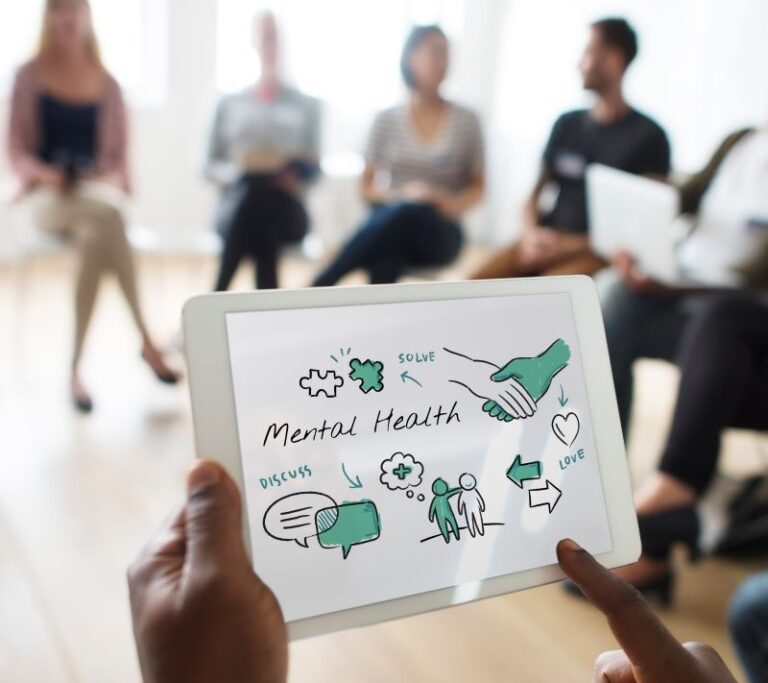Introduction
Mental health is often overlooked, yet it plays an essential role in the overall well-being of individuals. While physical health is regularly emphasized, mental health is equally important. It encompasses our psychological, emotional and social well-being, affecting how we feel, think, and act. It influences how we make decisions, handle stress, and relate to others. By addressing mental health, we can foster healthier, happier lives for individuals and communities alike. A strong mental state not only helps people cope with life’s inevitable challenges but also contributes to personal and professional success.
Table of Contents
What is Mental Health?

Mental health refers to the cognitive, emotional, and psychological state of a person. It affects how we think, feel, and behave in our daily lives. It’s about more than just the absence of mental disorders—good mental health is when an individual is able to handle stress, manage emotions effectively, and maintain positive relationships. The concept also includes how we perceive ourselves and our place in the world, our capacity for work, and how we contribute to our community.
Various factors influence mental health, including:
Biological Factors: Genetics play a significant role. A family history of mental illness, chemical imbalances in the brain, and hormonal issues can influence mental well-being.
Life Experiences: Traumatic experiences, abuse, neglect, or a history of drug or alcohol abuse can contribute to poor mental health.
Family and Social Support: Having a supportive family and a network of close friends can act as a buffer against mental health challenges.
Impact of Mental Health on Daily Life
Mental health impacts every aspect of our lives. A person’s thoughts, behaviors, emotions, and relationships are all influenced by their mental state. Poor mental health can lead to negative outcomes such as low productivity, strained relationships, and difficulties in managing daily tasks.
Emotional Impact: People with poor mental health may experience mood swings, irritability, or overwhelming sadness. This can affect decision-making and the ability to handle stress. When our emotional state is in turmoil, even the simplest tasks can feel overwhelming.
Behavioral Impact: Mental health also dictates our behaviors. An individual suffering from poor mental health might withdraw from social activities, become less active in their daily responsibilities, or engage in unhealthy coping mechanisms like substance abuse. Healthy mental states, on the other hand, encourage positive behaviors, leading to higher productivity and engagement.
Social Impact: Our ability to connect with others is largely based on our mental health. Those with positive mental health are more likely to have healthy relationships, communicate effectively, and manage conflicts. On the contrary, poor mental health can result in strained relationships, loneliness, and feelings of isolation.
Mental Health and Physical Health Connection
Mental and physical health are deeply interconnected. Many studies have shown that poor mental health increases the risk of developing physical health issues. Stress, anxiety, and depression are not only psychological issues but also manifest physically.
Impact of Stress on the Body: Chronic stress, for instance, is linked to conditions such as heart disease, high blood pressure, diabetes, and other physical health problems. The body releases hormones such as cortisol during periods of stress, and if sustained over time, these hormones can lead to inflammation and damage vital organs.
Depression and Physical Health: Depression has been linked to a weakened immune system, making individuals more prone to infections. It can also lead to fatigue, changes in appetite, and sleep disorders, all of which contribute to poor physical health.
Positive Mental Health and Physical Well-being: On the flip side, maintaining good mental health has been associated with numerous physical health benefits. Reduced stress and a positive mindset contribute to lower blood pressure, better sleep, and even an improved immune response. Those with good mental health are more likely to engage in healthy behaviors such as exercising, eating well, and avoiding risky activities.
Social and Economic Impact of Mental Health
Neglecting mental health doesn’t just affect the individual; it also has a broader societal and economic impact. A mentally healthy population is essential for a productive and thriving society.
Workplace Productivity: In the workplace, mental health problems can result in absenteeism, low productivity, and increased healthcare costs. Employees who experience burnout or anxiety are less likely to be productive, which negatively impacts businesses. The World Health Organization (WHO) estimates that depression and anxiety cost the global economy over $1 trillion per year in lost productivity.
Economic Costs of Poor Mental Health: Beyond lost productivity, mental health disorders require extensive healthcare, increasing the financial burden on healthcare systems. Costs related to therapy, medication, hospitalizations, and long-term care add up significantly.
Social Consequences: On a social level, poor mental health leads to strained relationships, difficulties in communication, and a breakdown in community structures. People with mental health issues may isolate themselves, reducing their participation in social or community activities. This, in turn, weakens societal bonds, creating further challenges in community cohesion.
Mental Health in Children and Adolescents
Mental health in children and adolescents is just as crucial as in adults, and early intervention is key. Childhood and adolescence are formative years where mental health plays a pivotal role in development. Mental health issues during these years can have long-term effects on educational outcomes, social skills, and future career success.

Mental Health and Development: Children and teenagers experience rapid emotional and psychological growth. Poor mental health during these stages can disrupt their development, leading to problems in adulthood such as depression, anxiety, and substance abuse. Early signs of mental health problems may include changes in behavior, difficulty concentrating, and emotional outbursts.
Role of Family and School: Family and school environments significantly impact a young person’s mental health. Supportive family relationships and positive school experiences promote healthy development. Conversely, adverse childhood experiences such as abuse, neglect, or bullying can harm mental well-being. Schools play a critical role in identifying mental health issues early and providing the necessary support.
Importance of Early Intervention: Early diagnosis and treatment of mental health issues in children and adolescents lead to better outcomes. Programs that focus on mental health education, counseling, and fostering resilience can help prevent problems from escalating.
Mental Health Stigma and Its Consequences
One of the biggest barriers to addressing mental health is the stigma surrounding it. People are often afraid to seek help or talk about their mental health issues due to fear of judgment, discrimination, or shame. This stigma creates a dangerous cycle where individuals feel isolated, worsening their condition.
Effects of Stigma: Stigmatization discourages individuals from seeking help, fearing that they will be seen as weak or incompetent. This prevents early diagnosis and treatment, allowing problems to escalate. It can also lead to social isolation, where individuals withdraw from family, friends, and communities.
Breaking the Stigma: Addressing the stigma around mental health requires open conversations and education. When society normalizes discussions about mental health, people will feel more comfortable seeking support. Mental health campaigns, educational programs, and public figures advocating for mental health can all help in reducing the stigma.
Benefits of Overcoming Stigma: When individuals feel safe to seek help, they are more likely to engage with mental health professionals, resulting in better health outcomes. Breaking the stigma also fosters a more supportive environment where communities can offer help and understanding to those in need.
Importance of Mental Health Awareness and Support Systems
Raising awareness about mental health is essential for creating a society that understands and values psychological well-being. Awareness initiatives help individuals recognize the signs of mental health issues early, reducing the risk of escalation.
Educational Campaigns: Mental health awareness programs teach people about the importance of mental health and how to identify early warning signs. These programs can be implemented in schools, workplaces, and communities, helping individuals take proactive steps to safeguard their mental health.
Support Systems: A strong support network of family, friends, and professionals plays a vital role in mental health. These support systems provide emotional assistance, reduce feelings of loneliness, and offer practical help in times of crisis. Having a dependable support system is often the difference between coping with mental health issues and feeling overwhelmed by them.
Accessible Mental Health Services: Access to mental health care is critical for those struggling. Unfortunately, not everyone has access to affordable, quality mental health services. Ensuring that mental health care is accessible to all can reduce the burden of mental illness and improve societal well-being.
Self-Care and Mental Health Management
Maintaining mental health requires consistent care and attention. Self-care practices are a simple yet effective way to boost mental health.
Mindfulness and Relaxation: Engaging in mindfulness practices such as meditation, deep breathing, and yoga can reduce stress and improve mental clarity. Taking time to relax and focus on the present moment helps to alleviate feelings of anxiety and depression.
Hobbies and Social Activities: Participating in hobbies, spending time outdoors, and engaging in social activities are beneficial for mental well-being. These activities provide a sense of purpose, achievement, and connection, all of which are essential for maintaining good mental health.
Seeking Professional Help: While self-care is important, there are times when professional help is necessary. Therapists, counselors, and psychiatrists are trained to provide support and treatment for a range of mental health issues. Regular check-ins with mental health professionals can help individuals stay on top of their well-being.
Conclusion
Mental health is basic to every aspect of life. It affects how we think, feel, and interact with others. Good mental health promotes productivity, healthy relationships, and a fulfilling life. Neglecting mental health can lead to a range of problems, both for the individual and society as a whole. Recognizing the importance of mental health and prioritizing well-being is crucial for leading a balanced, healthy life. Individuals must take proactive steps to care for their mental health, seek support when needed, and foster an environment where mental well-being is prioritized.
Learn more Article from different niches
If you want to Learn some great book
FAQs
What are the early signs of mental health problems?
The early signs of mental health problems may vary, but some common signs are:
Feeling excessively sad or withdrawn for long periods.
Extreme mood changes, such as highs or lows.
Overwhelming fears, worries, or anxieties.
Difficulty concentrating or confused thinking.
Avoiding social interactions or activities that were once enjoyed.
Changes in eating or sleeping habits.
Increased use of substances like alcohol or drugs.
How can I improve my mental health?
Improving mental health involves both self-care practices and lifestyle changes :
Stay active: Regular physical exercise can reduce stress and boost mood.
Sleep well: Adequate sleep is crucial for emotional and psychological well-being.
Connect with others: Build and maintain strong social relationships.
Practice mindfulness: Meditation and mindfulness exercises can help manage stress.
Seek professional help: If needed, therapy or counseling can offer tools for better mental health.
What is the difference between mental health and mental illness?
Mental health refers to a person’s overall emotional and psychological state, while mental illness refers to specific diagnosable conditions that affect mental health, such as depression, anxiety disorders, or schizophrenia. Good mental health allows individuals to function well, even in challenging situations, while mental illness may require treatment to manage symptoms and improve functioning.


3 thoughts on “Why is Mental Health Important-Above 35 years?”